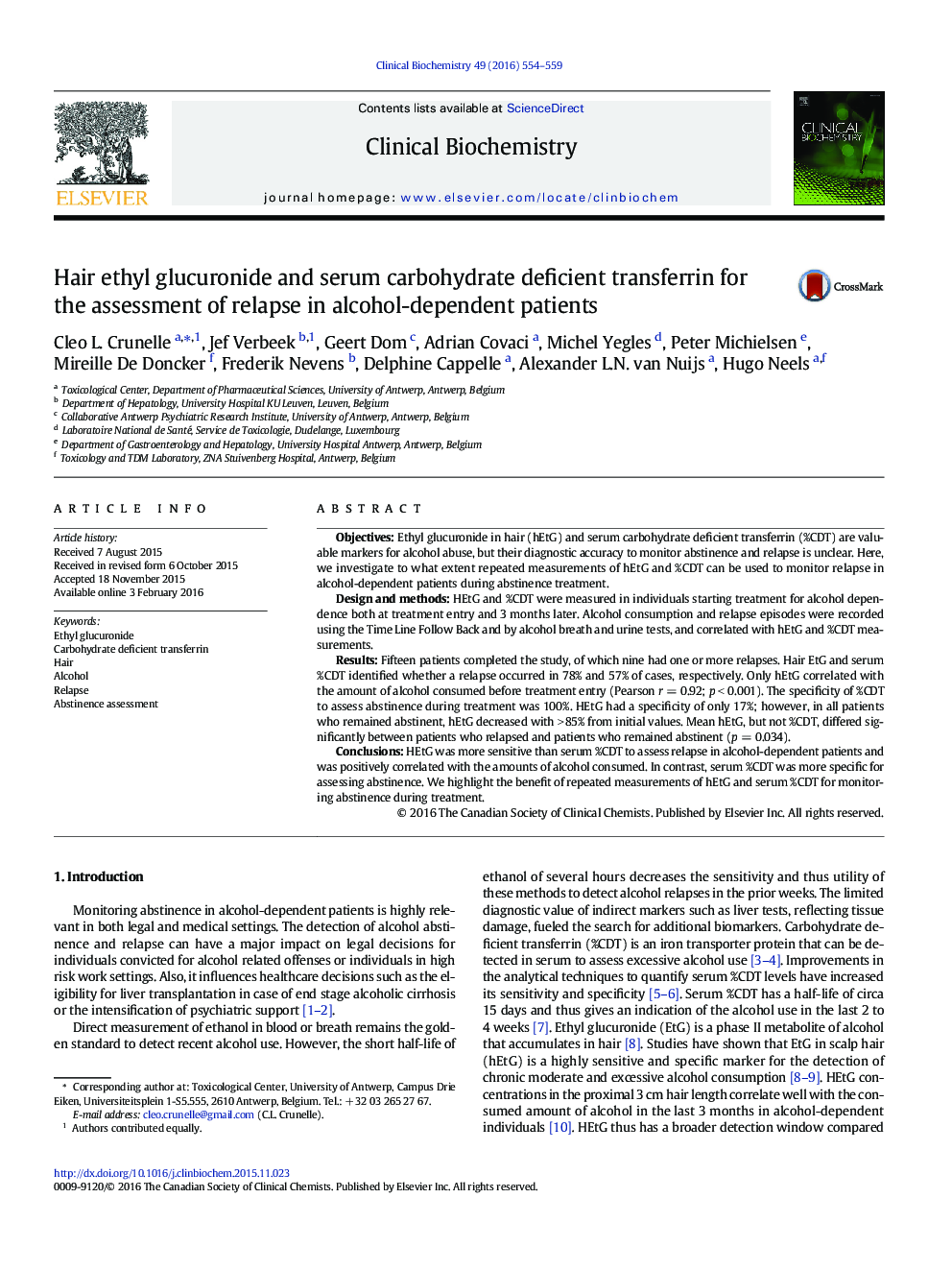| Article ID | Journal | Published Year | Pages | File Type |
|---|---|---|---|---|
| 1968530 | Clinical Biochemistry | 2016 | 6 Pages |
•Hair testing is a valuable tool for the detection of alcohol use.•Hair ethyl glucuronide can be used to assess relapse in alcohol-dependent patients.•Serial measurements of hair EtG and serum %CDT are useful for monitoring abstinence.
ObjectivesEthyl glucuronide in hair (hEtG) and serum carbohydrate deficient transferrin (%CDT) are valuable markers for alcohol abuse, but their diagnostic accuracy to monitor abstinence and relapse is unclear. Here, we investigate to what extent repeated measurements of hEtG and %CDT can be used to monitor relapse in alcohol-dependent patients during abstinence treatment.Design and methodsHEtG and %CDT were measured in individuals starting treatment for alcohol dependence both at treatment entry and 3 months later. Alcohol consumption and relapse episodes were recorded using the Time Line Follow Back and by alcohol breath and urine tests, and correlated with hEtG and %CDT measurements.ResultsFifteen patients completed the study, of which nine had one or more relapses. Hair EtG and serum %CDT identified whether a relapse occurred in 78% and 57% of cases, respectively. Only hEtG correlated with the amount of alcohol consumed before treatment entry (Pearson r = 0.92; p < 0.001). The specificity of %CDT to assess abstinence during treatment was 100%. HEtG had a specificity of only 17%; however, in all patients who remained abstinent, hEtG decreased with > 85% from initial values. Mean hEtG, but not %CDT, differed significantly between patients who relapsed and patients who remained abstinent (p = 0.034).ConclusionsHEtG was more sensitive than serum %CDT to assess relapse in alcohol-dependent patients and was positively correlated with the amounts of alcohol consumed. In contrast, serum %CDT was more specific for assessing abstinence. We highlight the benefit of repeated measurements of hEtG and serum %CDT for monitoring abstinence during treatment.
